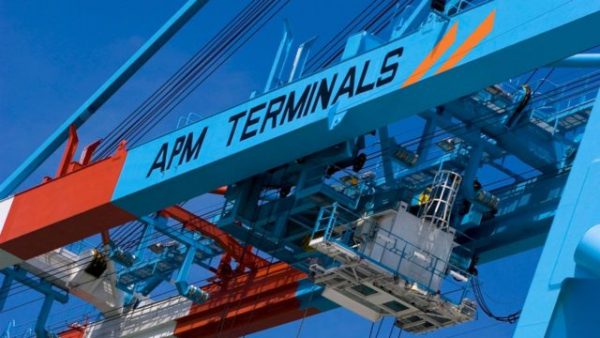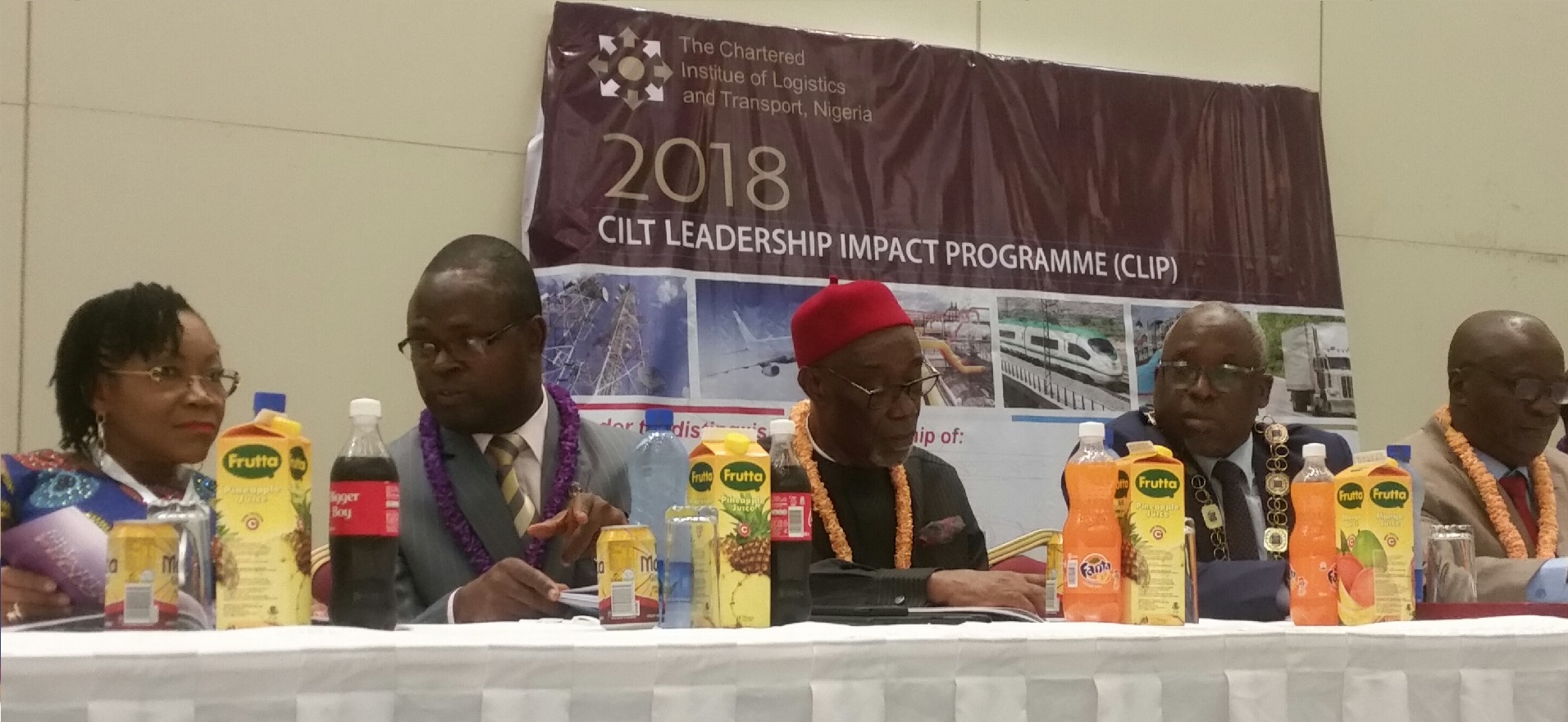How Transport Sector Could Forestall Nigeria’s Economic Recession

· Experts lament infrastructure deficits, pending bills, palliatives, others
· Downturn started before COVID-19 pandemic – NESG
By Kenneth Jukpor
Despite the 6.1 percent contraction of Nigeria’s economy in the second quarter of the year 2020, there are indications that the transportation sector could prevent a fatal economic recession postulated by economic experts and the National Bureau of Statistics (NBS).
Transport experts have posited that expeditious actions to address infrastructure deficits across the various modes of transport, sufficient provision of palliatives and resolving the policy challenges via passage of crucial transport bills could prevent the impending recession.
Last week, NBS statistics indicated that three sub-sectors of transport featured in the nation’s top five declining sectors, as rail transport declined by -63.3 percent, aviation by -57.4 percent and road by -51.4 percent. The top five regressing sectors were led by the oil and gas sector with -67.8 percent growth, while insurance completed the list with -29.5 percent.
Although the decline was largely attributed to significantly lower levels of both domestic and international economic activity during the second quarter, which resulted from nationwide shutdown efforts aimed at containing the COVID-19 pandemic; some experts have argued that there were worrisome signs for the nation’s economy before the pandemic.
The Coordinator, Transport and Logistics Group, Nigeria Economic Summit Group (NESG), Dr. Ikenna Nwosu told MMS Plus that the negative growth across all transport sub-sectors wasn’t just a result of the COVID-19 pandemic and consequent lockdown.
His words: “Prior to the pandemic, there were other factors such as the closure of the land borders which meant that cargoes couldn’t move through the land borders. The situation at the seaports with regards to the congestion further complicated issues as cargoes at seaports could hardly come out without delays and additional charges.”
“People had to rely more on air cargo but that couldn’t handle the volume addressed by the seas. Naturally, the complete economic lockdown across all states affected movement of goods, people and services. So, transportation was affected across all sectors. Although courier services were allowed to continue, they were epileptic because passenger flights weren’t there to compliment them.
The rail also didn’t work during the pandemic; however, banditry along the rail routes made the government to suspend the rail prior to the pandemic particularly the Abuja- Kaduna rail. These factors haven’t been addressed and they show that the negative growth of the transport sector isn’t purely as a result of COVID-19 pandemic.
The government needs to do more to address these issues. As a nation, Nigeria has international commitments and this closure of the land borders affects the nation’s commitment at Economic Community of West African States (ECOWAS) and the recent African Continental Free Trade Area (AfCFTA). These treaties emphasize free movement of goods and services. Nigeria’s reluctance to sign AfCFTA made the nation lose the secretariat and the position of Executive Secretary.
The recession is going to happen because activities at all transport sub-sectors are working at 50 percent capacity, except the sea. International trade also reduced as a result of the pandemic and the volume of Nigerian imports via sea dwindled.
In terms of palliatives, the aviation sector has been promised intervention funds by the Central Bank of Nigeria (CBN) and, last week, the Ministry of Transportation announced N10billion for the transport sector. The breakdown wasn’t given to ascertain who gets what. The extent to which the government would cushion the effect of the pandemic could determine if there would be a recession but there is no clarity on the palliatives yet.
Speaking with MMS Plus, last week, the Director General of Chartered Institute of Logistics and Transport (CILT) Nigeria, Mr. Paul Ndibe described the NBS economic report as a reflection of the realities in the country.
He, however, expressed regret that the federal government was paying lip service to transport sector development despite realizing the significance of the sector to the nation’s economic growth.
“Most of the policies that the government should have put in place to develop the transport sector have been jettisoned. National Transport policy; National Transport Commission (NTC) bill, Railway Acts amendment bill, Ports and Harbours bill, among others are crucial instruments that would enhance the contributions of the sector to national growth. It is not enough to elevate the Logistics and Transport sector as one of the top sectors in the economy. How have the federal government demonstrated this with pending bills,” Ndibe said.
The CILT Director General also noted Nigerian start-ups, especially Small and Medium-Sized Enterprises (SMEs) were grossly affected by the challenges which accrued from the transport sector, lamenting that the federal government hasn’t developed a clear structure to address the challenge.
Giving an appraisal of the aviation sector, Ndibe said; “International flights were scheduled to start on Saturday August 29th, 2020. However, the basic facilities weren’t in place at the airports. What would have happened if the Nigerian Civil Aviation Authority (NCAA) didn’t raise alarm about the equipment needed to protect passengers? This is an indication that the transportation sector, at least from the angle of aviation is still not ready.”
According to him, the component of local travel demand by air has about 35% to 40% driven by people who intend to make international trips.
“If someone is traveling to Europe from Calabar, you have to travel to Lagos or Abuja before taking the international flight. Such indices count as regular travel stats but they don’t tell the true picture of the sector. This global component of travel demand in the aviation sector is still missing because international flights haven’t started. The drop in the sector would continue until the international wing is opened and it would take some time before activities pick up. People have to be sure that while they are traveling, they are safe amid the pandemic,” he said.
Giving a rundown of activities in the railway sector, he said; “The rail sections from Maiduguri to Kafanchan, Kafanchan to Makurdi, Markudi to Enugu, Enugu to Aba, aren’t operational. Enugu to Aba is only recording minimal operations. The Ajaokuta to Warri section which was intended for freight services, is having just passenger movement on trial basis to sustain the tracks. That line is a freight line but Warri port isn’t connected and the Ajaokuta steel facility hasn’t been functional.”
“On the Lagos wing, there is huge passenger demand between Lagos to Ijoko/ Agbado before the pandemic. During the pandemic the rail service was stopped and they are yet to commence operations. The volume of passengers and the contribution of rail service to the economy wasn’t there from March 2020 until date. The Abuja-Kaduna rail service was also jettisoned during the period.”
“The good thing for the railway as it affects the Nigerian economy is that between Apapa and Ebute-Metta, NRC is stripping containers. This is a fairly good contribution to the freight service sector of the economy. However, this is yet to be fully utilized because it was jumped into. There is a need for more investment to increase the contribution of the freight distribution system of the nation.”
Speaking from the standpoint of shippers, the President of Shippers Association Lagos State (SALS), Rev. Jonathan Nicol said that the signs of an impending recession were glaring months before the outbreak of COVID-19.
“Nigeria may think it has cargoes but the system has been ripe for a collapse because things haven’t been moving well. Imagine a nation closing its land borders for over a year when it isn’t at war. Customs would say they are making more money since the border closure. Does this mean that they are doing smuggling?”
“The oil and gas sector has been unstable and the transport sector is almost at a standstill. The contribution of Lagos State represents about 30%-35% of the GDP contribution of transportation, yet, Lagos doesn’t have roads. Everyone knows the number of hours wasted to get into Apapa and get out and the traffic in Lagos isn’t only concentrated in Apapa. Most major bridges in Lagos are under repairs at the same time. How do we want the country to move? The railway is still on locomotive wagons instead of modern tracks and faster trains. I agree with the projection that a recession looms in this quarter. In fact, the nation is already in a recession but the economists don’t want to say it”, Nicol said.
Rating the nation’s maritime sector in the present quarter, he posited that the fiscal challenges such as high demurrages, storage charges, distortion financial books of most companies, poor infrastructure would continue to affect operators.
“People are still retrenching workers. Companies are saying work from home and that has enabled them to know those actually working. So, COVID-19 has helped several industries separate the wheat from the chaff and every company wants to cut costs by taking out the chaff. Mega companies will be affected and they will send hundreds and thousands of people into the unemployment market. How would the government cope with this?” he queried.







